#electronic component
Explore tagged Tumblr posts
Text
chip #ICGOODFIND #electronic component # LPC2119FBD64/01#NXP#IES0105S05-TR#POWER#BSC0906NS#INFINEON
2 notes
·
View notes
Text

🚀 TLP250H Optocoupler
Main features:
High-speed optical isolation, supporting high-frequency switching
2500V withstand voltage isolation
Suitable for power supply, motor drive, industrial control
Low power consumption, high reliability
🔥 In original spot stock, welcome to contact me!
2 notes
·
View notes
Text
Mitsubishi Cm1200Hb-66H Igbt Module E126Ab1N1-013 | Auto2mation
The Mitsubishi CM1200HB-66H IGBT Module (E126AB1N1-013) is a high-power semiconductor device designed for industrial and automation applications. It features 1200A current capacity and 3300V voltage rating, ensuring efficient power switching with minimal energy loss. Built for durability, it offers high thermal performance and reliability, making it ideal for motor drives, inverters, and power control systems. Its compact design allows easy installation and integration into various circuits. This Mitsubishi IGBT module enhances energy efficiency and performance in demanding environments, ensuring long-lasting operation. Find the CM1200HB-66H at Auto2Mation for reliable power solutions.
#industrial automation#industrial equipment#industrial spare parts#industrial#automation#industrial and marine automation#industrial parts supplier#industrial innovation#automation solutions#Marine Automation#marine equipment#marine spare parts#auto2mation#Manufacturing#Electronic Component#Mitubishi
0 notes
Text
RF Inductors, Minimal signal loss, electronic component, resistor
DR Series 22 uH ±20 % Tolerance 4 A Shielded SMT High Power Inductor
0 notes
Text
Amphenol Solar Connector
The Amphenol Solar Connector is a high-quality, durable connector designed specifically for photovoltaic (PV) solar systems. Known for reliability and robust performance, these connectors provide secure, weather-resistant connections between solar panels, inverters, and other system components. The Amphenol Solar Connector is an industry-leading solution designed to deliver dependable connections for photovoltaic (PV) systems, making it ideal for solar energy applications in residential, commercial, and industrial setups.
0 notes
Text

A black and white electronic component photo. A capacitor.
#electronic components#electronic component#capacitor#capacitors#photography#photo#photograph#picture#photos#photographs#image#black and white#blackandwhite#black and white photography#electronics
1 note
·
View note
Text

Electronic Component Provider in India - Arise o tech
visit the website now: https://ariseotechelectronics.com/
1 note
·
View note
Text
Analysis of the functions of commonly used electronic components
I published an article about "The Role of Commonly Used Electronic Components", welcome to check it out! Article address: https://www.dhsic.com/news/98
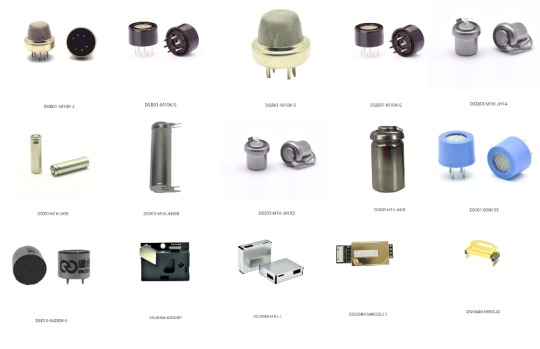
#Electronic components function#Function of components#Electronic Component#Resistor#capacitor#Inductor#Semiconductor device#integrated circuit#microcontroller#sensor#display device
0 notes
Text
https://www.futureelectronics.com/p/semiconductors--optoelectronics--isolation-components-optocouplers/moc3043sr2m-onsemi-4354221
What is an opt isolator, Power over Ethernet (PoE) technology , Ethernet LANs,
DIP6 SMT 1 Channel 400 V 4170 Vrms Zero-Cross Triac Optoisolator
#Onsemi#MOC3043SR2M#Optoelectronics#Isolation Components#Optocouplers#opto-isolator#electronic component#optical coupler#opto isolator module#Power over Ethernet (PoE) technology#Ethernet LANs#transistor#circuit#photocoupler#optocoupler
1 note
·
View note
Text
The Spark of Innovation: Exploring the Wonders of Electronic Components
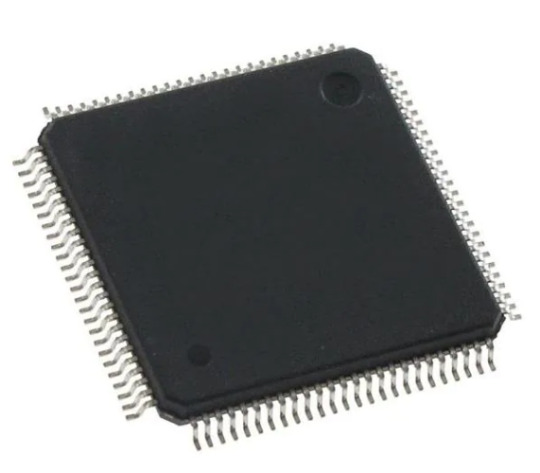
In the ever-evolving world of technology, electronic components are the unsung heroes that quietly power our modern lives. From the tiniest microchips to towering power transformers, these remarkable components serve as the building blocks of innovation, enabling everything from space exploration to the devices we use daily. In this blog post, we embark on a journey to explore the wonders of electronic components and their profound impact on our world.
The Diversity of Electronic Components
The realm of electronic components is incredibly diverse, with each component serving a unique purpose. Let's take a closer look at some of the most fascinating and influential electronic components:
Microcontrollers: Often referred to as the "brains" of electronic devices, microcontrollers are small computing devices that control the operation of everything from kitchen appliances to spacecraft. Their ability to process information and execute commands makes them indispensable in the world of automation.
LEDs (Light-Emitting Diodes): LEDs have revolutionized lighting by providing energy-efficient, long-lasting illumination. They are found in everything from traffic lights to flat-screen TVs and have significantly reduced energy consumption worldwide.
Sensors: Sensors are the senses of electronic devices, detecting changes in the environment and converting them into electrical signals. They are essential in applications like climate control, automotive safety systems, and even in wearable fitness trackers.
Printed Circuit Boards (PCBs): PCBs are the backbone of electronic devices, providing a platform for components to be interconnected. The intricate copper traces on a PCB form the circuits that enable devices to function as intended.
Capacitors: These components store and release electrical energy, providing stabilization and energy storage functions in power supplies and audio systems. Super capacitors, a more recent development, offer rapid energy storage and release for various applications.
Resonators and Crystals: Resonators and crystals provide precise timing in electronic circuits, ensuring devices operate at specific frequencies. They are crucial in applications like cell phones, where accurate timing is essential for communication.
Transistors: Transistors are the workhorses of modern electronics, enabling amplification and switching. They are the heart of microprocessors, allowing them to perform complex computations quickly.
Impact on Innovation
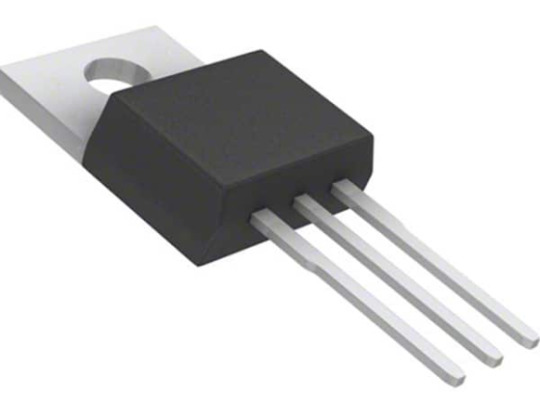
The continued development and miniaturization of electronic components have driven incredible advancements in technology. Here are a few examples:
Smartphones: The miniaturization of components, especially microprocessors and sensors, has given rise to the smartphone revolution. These devices pack immense computing power and functionality into a pocket-sized form factor.
Space Exploration: Electronic components have enabled humanity to explore space, from the computer systems on board spacecraft to the instruments used to study distant planets and galaxies.
Renewable Energy: Components integrated circuit such as power inverters and energy storage devices are pivotal in harnessing renewable energy sources like solar and wind power, contributing to a more sustainable future.
Healthcare: Electronic components play a vital role in medical devices, from patient monitoring equipment to diagnostic tools and life-saving implants.
Electronic components are the silent enablers of our technological world, and their influence continues to grow. As we witness innovations in fields like artificial intelligence, quantum computing, and the Internet of Things (IoT), electronic components will remain at the forefront of these advancements. Their versatility, reliability, and ability to continually evolve make them an enduring source of inspiration for inventors, engineers, and dreamers alike. So, the next time you marvel at a cutting-edge gadget or a breakthrough in science and technology, remember to pay homage to the electronic components that make it all possible.
#integrated circuit#electronic components#electronic component#southchips#southchip#southchips electronic components#southchips electronic component#electronic components distributor
1 note
·
View note
Photo

MAURIZIO CATTELAN / UNTITLED, 2001 Couple of elevators (scale 1:7,5), stainless steel, electronic components 35 x 59.5 x 26.3 cm | 23 1/2 x 33 3/4 x 18 inch
#mauri zcatelan#installation#stainless steel and electronic components#contemporary#industrial design#mechanism#beatrex mechanism#2001#surrealism
4K notes
·
View notes
Text
Identifying the Positive and Negative Poles of Zener Diodes: A Guide for Electronics Enthusiasts
2023-07-21
18
Zener diodes play a crucial role in various electronic circuits as voltage stabilizers and regulators, ensuring stable power supply and protecting sensitive components. As with any electronic component, correctly identifying the positive and negative poles of a Zener diode is paramount for proper function. The following article provides several methods to help you distinguish between the anode and cathode of a Zener diode.
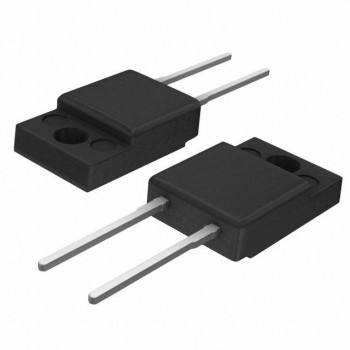
1. Visual Inspection: Manufacturers often mark the diode's exterior with indicators to assist users in identifying the positive and negative poles. Common identifiers include ink markings, etchings, or indentations on the diode's casing. In some cases, the anode (positive) end might be marked with red ink, while the cathode (negative) end might be marked with black ink.
2. Pin Length: For certain types of Zener diodes, the pin length of the positive and negative poles might vary. Generally, the anode (positive) pin is longer, and the cathode (negative) pin is shorter. However, keep in mind that this rule is not always accurate, especially for used or repurposed components.
3. Multimeter Testing: A digital multimeter can provide a definitive method to distinguish between the anode and cathode of a Zener diode. Set the multimeter to diode testing mode. Connect the red (positive) probe to the suspected anode and the black (negative) probe to the suspected cathode. A displayed value greater than zero and within a typical diode voltage drop range (e.g., 0.5V to 0.8V) indicates that the probes are correctly connected to the anode and cathode.
With these techniques, you can effectively identify the positive and negative poles of a Zener diode. Ensuring the correct polarity during installation is essential for maintaining a stable, well-performing circuit. When working with electronic components, always adhere to safety guidelines to minimize the risk of electric shocks or potential component damage.
Diode related articles:
How Diodes Work and Selection Guide
Diode Hot Products:
BY359X-1500S,127
1N4448,113
BAS321/ZLX
PMEG2010AEK,115
BY329-1200,127
BY359-1500,127
BYD17J,115
BAS316/ZLX
1 note
·
View note
Note
Silly doodle of the components chewing on Electra like rabid pack animals

Crying

#starlight express#stex revival#stex#stex london 2024#stex fanart#starlight express electra#electra starlight express#electra the electric engine#electronic components#starlight express fanart#wrench the repair truck#joule the dynamite truck#Volt the freezer truck#killerwatt the security truck#volta the freezer truck
365 notes
·
View notes
Text

A series of components that were featured in Windell Oskay and Eric Schlaepfer's book, Open Circuits. I highly recommend checking out that book.
575 notes
·
View notes
Text
Chapter 5: Electra and Components Updates
As Greaseball, Dinah, Rusty, Ashley, Buffy, and Pearl are held up in the shed conversing about what to do next the sound of explosions and gunfire can be heard in the distance.







#starlight express#starlight express musical#starlight express infection au#dinah the dining car#greaseball the diesel#pearl starlight express#infection au#stex dinah#pearl the first class car#pearl the observation car#electra starlight express#stex electra#electra the electric engine#stex components#electronic components#wrench the repair truck#krupp the armaments truck#volta the freezer truck#purse the money truck#joule the dynamite truck
232 notes
·
View notes
Text
are there london revival stex fans here PLEAASEE ive been going insane slowly!!
anyways i have art ive done over the past couple of months to bribe you guys... plspslslspls
my fave is electra btw ><


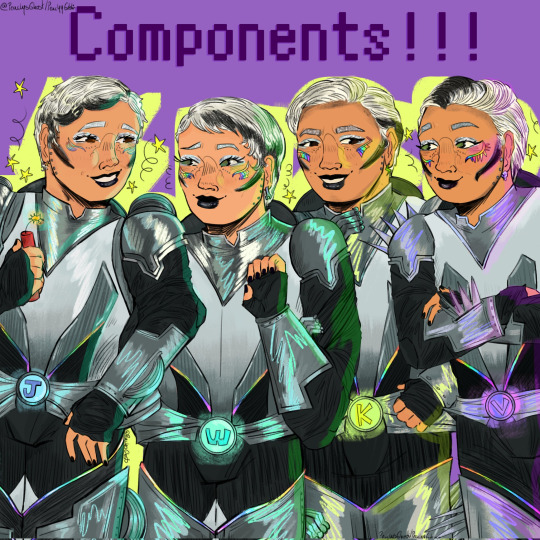



can you guys tell ive slowly been losing it Xoxoxoxoo
#starlight express#starlight express london#stex london 2024#stex revival#stex#starlight express fanart#starlight express art#starlight express greaseball#greaseball the diesel#stex greaseball#electra the electric engine#electra starlight express#belle starlight express#belle the sleeping car#tassita the quiet car#stex tassita#dinah the dining car#starlight express 2024#electronic components#green arrow
380 notes
·
View notes